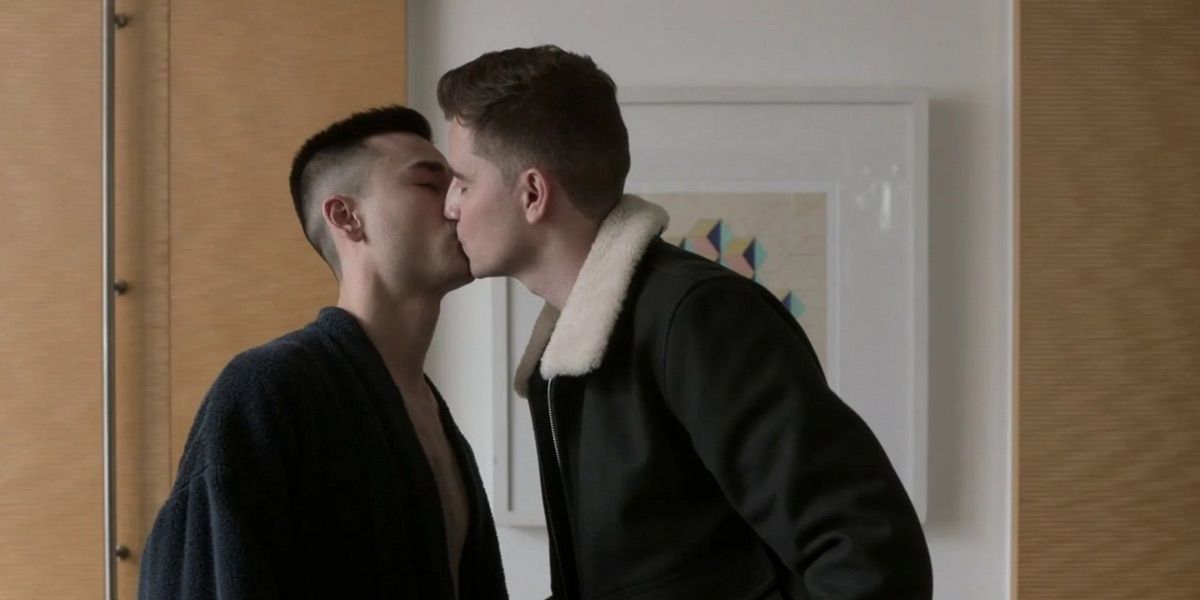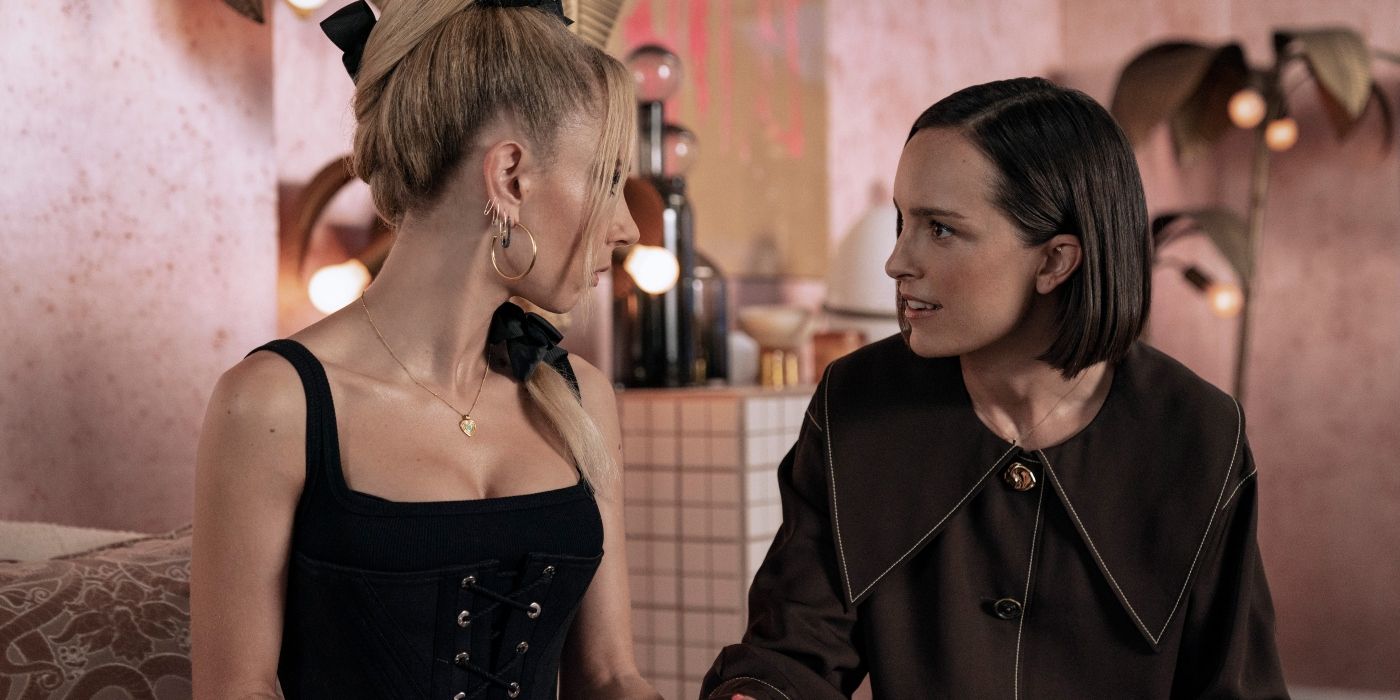Like previous seasons, Ted Lasso has continued the inclusion of serious issues in the third season. In the past, the series has done well in raising awareness about certain situations. But, because Season 3 is so cluttered with plot lines, these conflicts have weak resolutions — if any resolution at all. Sam (Toheeb Jimoh), Colin (Billy Harris), and Keeley (Juno Temple) all experience conflicts that are really relevant in today’s social climate but have not had a satisfying conclusion.
Sam Obisanya's Conflict Remains Unresolved
Sam Obisanya is one of AFC Richmond’s immigrant players. Being from Nigeria, his character allows for important issues to come to the forefront to raise awareness among Ted Lasso viewers. For example, in a previous season, Sam protested DubaiAir (the team’s sponsor) because of the company’s association with the pollution of his home country. In response, the whole team protests, and the sponsor is eventually changed.
In Season 3, though, he publicly posts his disapproval of immigration laws supported by a political official. This leads to virtual harassment from others who also vandalize Ola’s, his restaurant. Not only is the vandalism a direct attack on Toheeb Jimoh's character but for immigrants in general. Ola’s brings Nigerian immigrants the taste of home while also sharing their culture with anyone residing in London. This issue is contained into one episode and has no resolution aside from the team fixing up the restaurant. Immigration policies are a huge political issue across the world and immigrants are often harassed because of disagreements. This specific topic needs more discussion throughout the season if Ted Lasso wants to make this a serious issue.
The LGBTQ+ Storylines Leave More to Be Desired
Sam has had more of a spotlight in Seasons 1 and 2, so Season 3 decided to shift more focus to someone who has never had that spotlight: Colin. The series reveals early on in the final season that Colin has been hiding his sexuality from his team and the world in general. Until now, viewers saw Colin the way he presented himself to others, so it is refreshing to see the real him. But, because of other plots, Colin’s sexuality has often been sidelined and then shoehorned in whenever remotely relevant.
There have been wholesome moments related to the queer story arc, like the bonding between him and Trent Crimm, who is also revealed to be gay. But, nearing the end of the season, Colin seems no closer to coming out than he did at the beginning. Instead of feeling comfortable enough to come out on his own, Isaac instead snatches his phone inappropriately and discovers his secret. This approach ruins the wholesomeness of it all because it becomes more of a forced coming-out story.
It is a shame that Colin has had the chance to bond with Trent, but not with Keeley Jones who is in charge of the team’s PR. Keeley is openly bisexual and begins a relationship with a woman named Jack (Jodi Balfour) after her breakup with Roy Kent (Brett Goldstein). She could have been a great support to him both personally and professionally and in return he could have returned the favor when conflict arose in her relationship. Jack exposed power dynamics in her relationship with Keeley as both her boss and of someone with much greater wealth. For example, she love-bombed Keeley by showering her with expensive gifts and taking away her voice by speaking for her.
Keeley's Leak Storyline Deserves To Be More Than Just a Footnote
As if Jack was not already on thin ice for Keeley and Ted Lasso fans as a whole, she then degrades Keeley for being a sexual woman following an explicit video of hers being leaked to the public. Instead of being a supportive girlfriend, she urges Keeley to apologize to the public and express regret for even making such a video. While at first Jack’s approach to the situation is to preserve her and Keeley’s social image, she berates Keeley for making the video in the first place and ends the relationship over the lack of regret, openly shaming Keeley.
With this being Keeley’s only queer relationship in the series, it is upsetting that it is portrayed as her worst on-screen romance. Even the once arrogant Jamie Tartt (Phil Dunster) had room for growth to become a better partner than Jack. Also, as a woman, Jack should have a better understanding than Roy and Jamie of the stigma around women’s sexuality. The other issue is that aside from Jack’s push for an apology, no action is taken to respond to the leaks. Keeley discusses not regretting the making of the video throughout the episode, but she does not offer a response to publicly state these sentiments. Instead, she says nothing and is mostly met with apologies.
If anything, this plot seems like more of a segue back to the rekindling of her relationship with Jamie Tartt. At the end of the episode, he reveals that he was hacked and therefore responsible for the leaked video, and then the scene ends with them embracing. This does not exactly represent women’s empowerment and instead, the focus is again on the support of the team rather than diving into the topic of feminine sexuality. On top of that, the only dialogue we have about the leak is among the men in the locker room, making the discussion about everybody but Keeley.
The Portrayal of These Issues Is Important But Only Surface Level
Including these storylines in Ted Lasso at all is commendable, but the execution leaves more to be desired. These topics are of great importance and are not specific to one country. The series takes place in London and therefore focuses on politics within the United Kingdom, but the same issues are ever-present in daily political discussions in the United States as well. This is the case all around the world. Immigration policy is a hot-button topic and discussions often sway toward othering entire groups of people.
Like the topic of immigration, sexuality and sex-positivity discussions also work to other women and the LGBTQ+ community. Throughout history, being gay was illegal as late as the 20th century and the HIV/AIDS crisis exacerbated the stigma around homosexuality. Like female sexuality, Ted Lasso does not reveal this stigma enough to show why Colin is so scared. Overall, these story arcs still create important discussions worldwide, but their portrayal does not provoke empathy from the audience.





